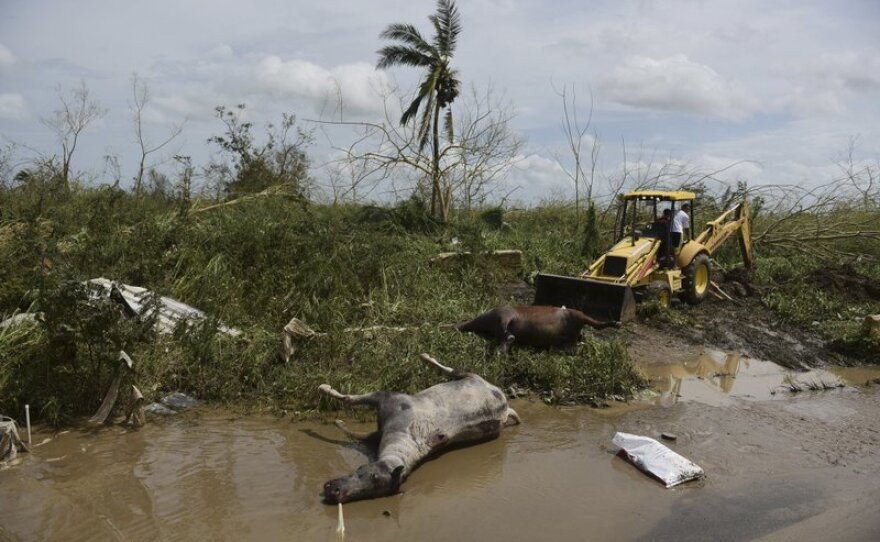Farmers in Puerto Rico are still reeling from the devastation from Hurricane Maria. Many coffee, banana and tobacco crops are lost, as is a lot of livestock.
On Saturday, Elizabeth Cuevas-Neunder, the CEO and founder of the Puerto Rican Chamber of Commerce of Florida, will deliver 50,000 beans, vegetable and fruit seeds directly to farmers who need them to start over.
“The seeds give an opportunity to our farmers to get busy growing the products that they are going to need to feed themselves, their families and also others, because they’ll be able to sell the products,” she said.
Maria destroyed 80 percent of Puerto Rico’s crops and caused roughly $780 million in damage, according to the Puerto Rican Chamber of Commerce of Florida. The Sarasota-based nonprofit group has been working with farmers for 12 years to export products to Florida.
Cuevas-Neunder said she’s only reached 50 of the 180 farmers she worked with before the hurricane. Electricity and phone lines are still out.

Cuevas-Neunder, 63, began collecting seed donations just before she learned that her brother died of a heart condition after he was taken to a hospital that was still without electricity weeks after the hurricane.
When she returned to her small hometown in western Puerto Rico four months ago, she found the bridges were gone and the rivers surrounding the town took whole houses away. But the worst damage was to the local farmers.
“Everything was in terrible, terrible shape. And my little town, Utuado, had been completely demolished,” she said.
Many farmers in the region had to rely on the kindness of neighbors and strangers to survive.
“It was so hard to see your hometown, where you grew up never hearing about hurricanes, completely gone,” she said. “It’s such a beautiful town, surrounded my mountains with two big lakes and a lot of rivers and streams. When you go up the mountains, you can still see the clouds blanket the whole region.”
The last time she made contact with friends and family, she said the recent rain has brought the flowers back.
“When I go back, I expect to find a lot of people willing and able to get their hands dirty and move on to help those who are still in need,” she said.
While the island has received food, water and monetary donations, she feels the government hasn’t done enough to get those resources to the people.
To Cuevas-Neunder, the seeds represent a “Band-Aid” for the island, until its people can get back on their feed.
“When you plant a seed, you and and put the care you need to see it grow. It gives farmers a reminder to remember how important they are to the world,” she said.







